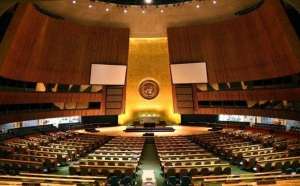
Upon exiting the Middle Ages, poverty was the same everywhere, both in Russia, France, Romania or Denmark.
About 200 years ago, in the beginning of the 19th century, if your family was part of the poor, it didn't matter where you were born - on the left shore of Teleajen, or the right shore of the Thames - because poverty was the same everywhere.
That is how, among the colonists of the Falanster of Scăieni, created in 1835 and disbanded towards next year, legend says that there were also English immigrants, attracted by the application of the Fourierist ideas, in the socialist dream of egalitarianism.
The freeing of gypsies by nobleman Emanoil Bălăceanu (cousin of Teodor Mehtupciu, nicknamed Diamandi/Diamant - the initiator of the Falanster), on whose fiefdom the socialist experiment took place, was more connected to the need to fill the workforce needed for the project which was subsequently called "utopian", than as an application of the egalitarian principles.
In agrarian societies, the level of wealth was set through being born in one of the positions of the social hierarchy, and stories of achievement were rare and for the most part, they involved imposture; that is why the story of "Cinderella's" success went "viral", crossing millennia, from Rhodopis, in ancient Egypt, to the French Charles Perrault (in 1697) and the Grimm Brothers (19th century).
The economy based on agriculture naturally limited incomes and leveled the differences within the social strata, keeping them within a hierarchy that reproduced itself from one generation to the next.
The switch to the industrial production had to impose the slogan "Liberte, Egalite, Fraternite ou la mort" (with the latter part removed), which is nowadays France's national motto and which synthesized the moral values of the French Revolution (1789 -1799), which significantly affected modern history and marking the strong decline of monarchy and the Church and the appearance of democracy and nationalism.
As a direct consequence, centralized states and national economies have crystallized, raising the boundaries of economic development that have allowed uneven industrial developments, from one country to another, whose resources do not so much tied to natural riches, as much as the use of ingenuity, scientific, technical, technological advancement, work organization and discipline, education level.
From this at moment, success stories become the rule, and not the exception, the social and economic hierarchy becoming permeable, so it is no longer as important which social status you had upon birth, but rather, in which country you were born, and what level of development it had.
Former World Bank chief economist, Serb-American Branko Milanovic has argued that wealth-poverty inequality focuses on two perspectives, which I present below:
A. some argue that global inequality is irrelevant for two reasons:
1) the calculation of global inequality would lead to a "lunatic" result, which would be meaningless, because there is neither a world government nor a global civil society and, therefore, no political significance can be attributed to it, unlike the manifest inequality within a nation;
2) the poor are allegedly interested in improving their own material conditions, not in relative terms to the wealth of others, so that even if the disparity increased between, for example, an average American and an average African, the African would be satisfied if, in absolute terms, their income had risen somewhat (Milanovic mentions, here, that psychological studies contradict this thesis).
B. others claim that global inequality is important, bringing other arguments:
1) from an ethical perspective, the fair distribution, within a nation, as well as internationally, is necessary, because the fate of every individual affects us all;
2) from a political perspective, inequality feeds tensions.
1971 Economics Nobel prize winner, Simon Smith Kuznets (an Americanized Russian), claims that inequality in the distribution of wealth favors growth in poor countries, while development in rich countries, reduces inequality (the development of poor countries involves switching from agriculture - which brings constant, but capped wealth -, to industry - which leads to the acceleration of income growth -, while in industrialized countries, the need to democratize access to education, specific to skilled workforce used in industry, has the gift of flattening income disparities).
While some point out the motivational nature of income inequality distribution, others estimate that the reduction of disparities creates cohesion in society, with effects on healthcare, demographics and political freedom.
It is clear that wealth inequality cannot be categorized as "bad" or "good" in an absolute way, but it can be sometimes be one way or the other, depending on circumstances, and it seems unwise to regiment in a militant movement for any of the alternatives; on the other hand, exaggerated disparities become dysfunctional.
Income inequality is natural and it is behind the practice of lending.
In turn, lending is naturally accompanied by interest, in the agricultural activity, but not in trade, which is nothing but an arbitrage between territories or areas with different values; in the globalized world, the natural sphere of action of interest narrows.
It bears mentioning that the lending and interest relationship structures economic and social organization, while wealth disparity is nothing but a manifestation thereof.
The recent news about how the increase of world debt by 24 trillion dollars in the last year, (to $281 trillion, compared to a global GDP of $79 trillion) sinks the social and economic organization into nonsense, which demands change.
And a change on that level could be called "revolution", if we could image the future organization.
MAKE















































